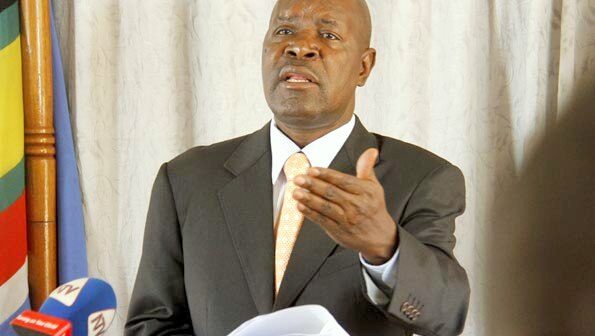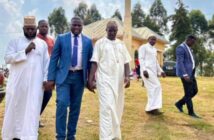The first swearing-in of President Museveni, on January 29, 1986, and formation of government, was really not a walk-on-experience, to say the least, because many combatants were young idealists, mostly below thirty years of age, and inexperienced. But with a bundle of political old guards particularly from DP and CP, Museveni cobbled a team that ushered in a hope and high expectations especially among a broad section of Ugandans who had suffered under UPC I, Field Marshal Idi Amin, UNLF/A, UPC II, and the short-lived six-month military junta of Gen. Okello Lutwa.
Under both UPC I and Idi Amin combined from 1962 to 1979, Ugandans high and low, suspected of real or perceived political dissent, were either detained, killed, forced underground, or fled into exile near and far. Much of the time during both regimes such detentions were often without trial before courts of competent jurisdictions.
The effects of arbitrariness and high-handedness led to the total collapse of rule of law, constitutionalism, democracy, state institutions, and national economy pushing Ugandans into despair. The advent of UNLA and UPC II were supposed to bring national unity. Instead, disunity, unprincipled alliances, official mismanagement and anarchy reigned.
The thirty-four years of the NRM, have raised hope especially after countrywide restoration of peace, security, and stability, reconstruction of social services, and physical infrastructure. This year’s theme “celebrating NRM/A’s patriotic struggle that ushered in national unity and socio-economic transformation,” Ugandans, especially leaders, should be reflecting, if the gains so far made, are irreversible.
The numerous sacrifices made, often drenched in blood, over this period, ought to be considered as stepping stones towards larger and long-term process of national welding, building and shared prosperity. Achieving national unity, freedom, democracy, eliminating sectarianism and chauvinism, freedom democracy, and shared prosperity would be a fitting tribute to all Ugandans. From new brooms, the NRM is today comprised of old and diverse brooms that should know all the corners to sweep better and cleaner. During this year, we should jointly work to reduce and where possible, eliminate the rough brushing between government and the opposition. It’s gratifying to see the NRM, and UPC that fought each, today, working together, to consolidate our gains.
It’s distressing, that some leaders exhibit careerism and love for soft money, but they should know that the momentum in Uganda’s Second Liberation struggle has been sustained, more, by the powerful force of conviction in the righteousness and justness of what it stood for and pursued, often under very difficult circumstances. Some of the freebooters have become calculative sycophants, and difficult to detect and uproot, giving the NRM a low bar. Today, most Ugandans are standing on the shoulders of many forgotten, and perhaps even unknown heroes, lying in unmarked graves, whose vision and mission should be translated into sustained and durable reality.
And while some elements of the opposition political groups and social critics continue to show disingenuity in acknowledging the achievements of the last three decades, posterity and time usually don’t cheat. Achievements like universal education and health have engendered new challenges like unemployment, especially of the educated and skilled, but foundation for a better future is being laid if we collectively worked creatively and innovatively to improve production and productivity.
Like President Museveni has often advised, the agriculture is a good sector to start with because it can provide sufficient food, employment and incomes for many homes, if value addition is applied targeting domestic and regional markets. With the broad spectrum of crops like coffee, cotton, tea, cocoa, sugar, fruits, and wood products, in addition to diary, beef and leather products, transformation should be achievable.
Equally, physical infrastructure like roads, electricity, ICT and housing, as well as social services, health, education, water and sanitation, youth and women empowerment have all registered phenomenal progress, and are significantly contributing to expand opportunities, lower investment and business costs.
The Vision 2040, to transform Uganda from a predominantly peasant and agrarian economy to middle class and prosperous country has been pursued over the two five-year two National Development Plan (NDP). They focused mainly on consolidating wealth creation, employment and all-encompassing growth so as to attain middle income status by 2020, which the government has already acknowledge won’t be achieved. NDPII, which is ending in June 2020 had prioritized agriculture, tourism, minerals, oil and gas, infrastructure development, and, human capital development, Good governance, democracy and security.
Many Ugandans acknowledge that the achievements of the past three decades have engendered new challenges in addition to old malaise of corruption, and abdication of responsibility by public servants and citizens. Despite these challenges, Ugandans should not surrender their future to fate, but rather recommit themselves to more work and continue the journey of building a prosperous Uganda.
By Ofwono Opondo



